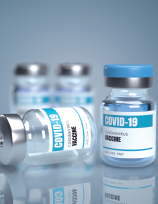An array of complications may arise after a pediatric tracheotomy, and the clinician should be mindful of advanced-stage pressure injuries.


An array of complications may arise after a pediatric tracheotomy, and the clinician should be mindful of advanced-stage pressure injuries.

Phone-based technologies can make it easier for patients and providers to communicate on a variety of issues, ranging from reminding patients of clinical visits to more novel uses that facilitate intervention for specific conditions.

Most cases of oropharyngeal cancer are positive for the human papillomavirus, but among Blacks, 55.3% of cases are HPV-negative, and HPV-negative cases are, to say the least, understudied, said Babak […]

A look at information blocking, the exceptions created by the Cures Act final rule, and the steps providers need to take to ensure that they’re in compliance with the rule.

Amid the COVID-19 pandemic gloom, research demands have led to a massive and stunning achievement in the science of vaccines, and there’s much to celebrate.



Men who suffer sensory loss, particularly hearing loss, are more likely to be physically inactive and obese than women, according to a new study published in the European Journal of […]

A new study published in the Journal of Experimental Medicine has shown that up to half of patients with head and neck squamous cell carcinoma will experience tumor recurrence or […]

I didn’t realize the intensity and depth of the emotions I had been suppressing for the past several decades as an Asian American.